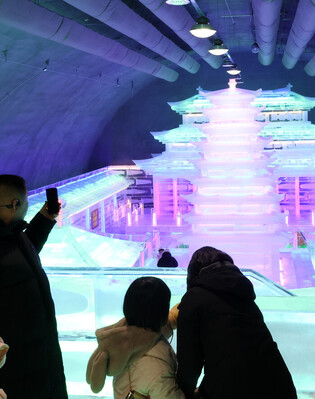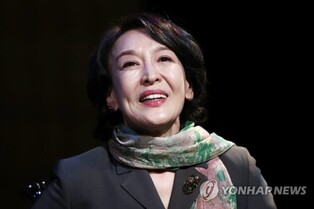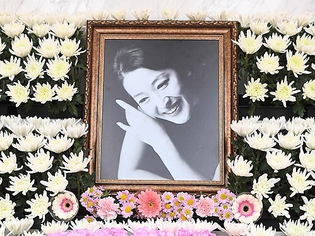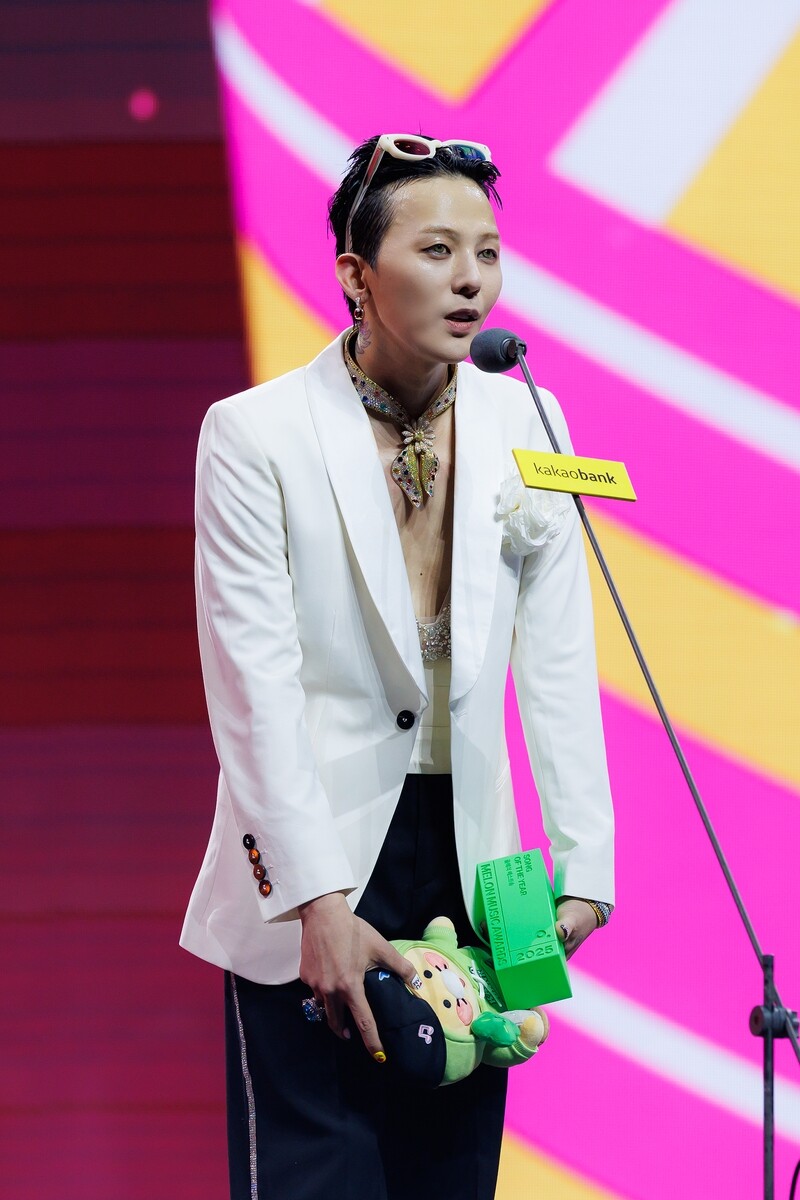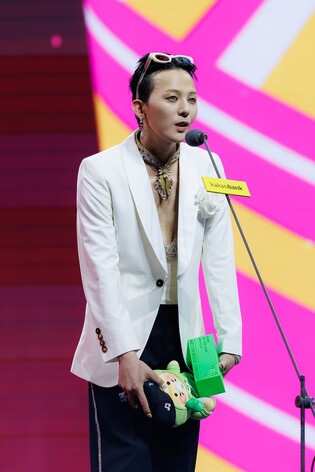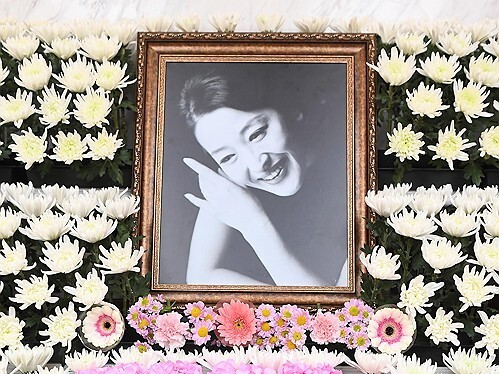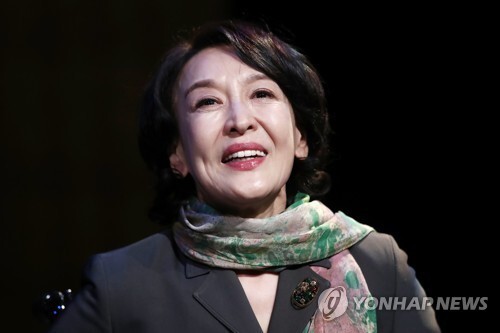top 10 news-2024
 |
| ▲ President Yoon Suk Yeol declares emergency martial law during a public address at the presidential office in Seoul on Dec. 3, 2024, in this photo provided by his office. (PHOTO NOT FOR SALE) (Yonhap) |
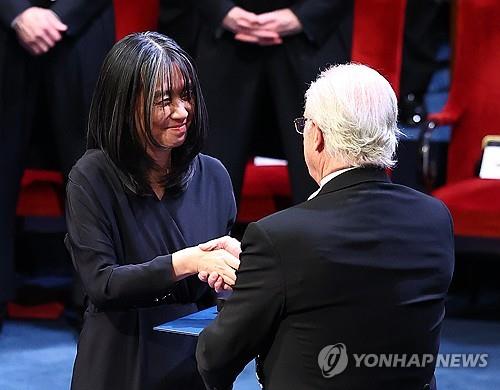 |
| ▲ South Korean novelist Han Kang (L) receives a diploma and a Nobel medal from Sweden's King Carl XVI Gustaf during the Nobel Prize 2024 award ceremony at the Concert Hall in Stockholm, on Dec. 10, 2024. (Yonhap) |
 |
| ▲ Myung Tae-kyun, a self-proclaimed power broker at the center of an influence-peddling scandal, appears before the Changwon District Prosecutors Office in Changwon, about 300 kilometers southeast of Seoul, on Nov. 8, 2024. (Yonhap) |
 |
| ▲ This image, published by the Korean Central News Agency on June 20, 2024, shows North Korean leader Kim Jong-un (L) riding a vehicle with Russian President Vladimir Putin at a garden inside the Kumsusan Guest Palace in Pyongyang. (For Use Only in the Republic of Korea. No Redistribution) (Yonhap) |
 |
| ▲ A poster calling for the return of trainee doctors to their worksites is put up at a hospital in Seoul on July, 15, 2024. (Yonhap) |
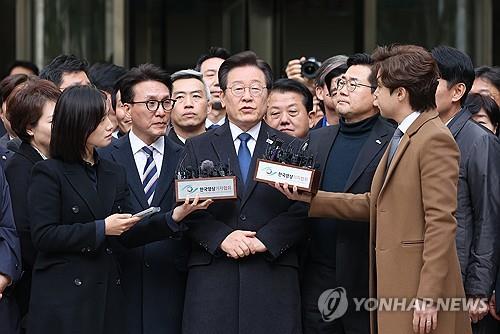 |
| ▲ Lee Jae-myung (C), the leader of the main opposition Democratic Party, speaks to reporters after being acquitted of subornation of perjury charges at the Seoul Central District Court on Nov. 25, 2024. (Pool photo) (Yonhap) |
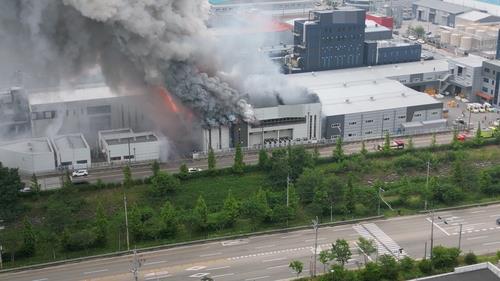 |
| ▲ This photo provided by a Yonhap News reader shows a fire at Aricell's plant in Hwaseong, some 45 kilometers south of Seoul, on June 24, 2024. (PHOTO NOT FOR SALE) (Yonhap) |
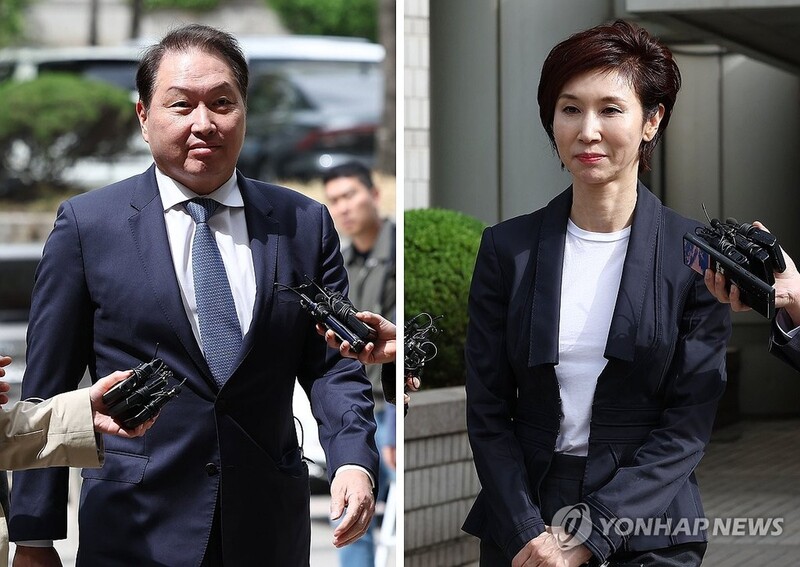 |
| ▲ This composite photo shows SK Group Chairman Chey Tae-won (L) and his wife, Roh Soh-yeong, arriving at the Seoul High Court in the capital on April 16, 2024, to attend a hearing on their divorce proceedings. (Yonhap) |
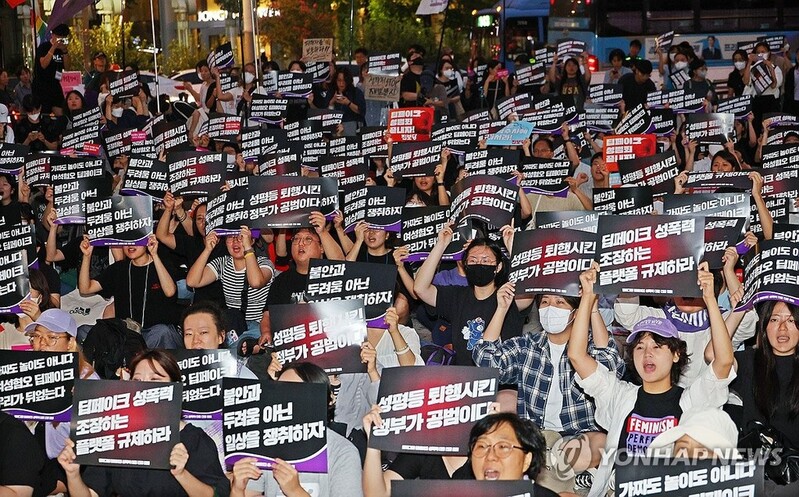 |
| ▲ A civic group stages a rally in central Seoul on Sept. 6, 2024, to call on the government strengthen regulations on online platforms to eradicate deepfake sex crimes. (Yonhap) |
 |
| ▲ Lee Jae-myung, leader of the main opposition Democratic Party, lies down after he was stabbed by an assailant on the left side of his neck during a visit to the construction site of an airport on Gadeok Island off the southeastern port city of Busan on Jan. 2, 2024. (Yonhap) |
top 10 news-2024
Top 10 Korean news of 2024
SEOUL, Dec. 17 (Yonhap) -- The following are the top 10 South Korean news stories of 2024 as selected by Yonhap News editors.
▲ President Yoon Suk Yeol impeached over botched martial law declaration
The National Assembly voted Dec. 14 to impeach President Yoon Suk Yeol over his short-lived martial law declaration, just 11 days after the declaration that shocked the nation and the world.
Yoon claimed the decision, the first of such kind in 45 years, was to root out "anti-state" forces, accusing the opposition of "paralyzing" the government through impeachment efforts and budget cuts.
Yoon rescinded the decree six hours later after it was overwhelmingly rejected by 190 lawmakers, who entered the parliament building by climbing fences and breaking through barricades manned by armed forces and police officers.
An initial impeachment motion submitted by the opposition bloc on Dec. 7 was scrapped as ruling party lawmakers largely boycotted the vote, which required a two-thirds majority to pass.
As prosecutors and police expanded their investigations into allegations of insurrection related to Yoon's actions, the president delivered a defiant national address on Dec. 12 to defend the martial law order as "an act of governance."
On Dec. 14, the National Assembly passed a second impeachment motion with 204 votes in favor, 85 votes against it, three abstentions, and eight invalid ballots.
Following the vote, Yoon said he would "never give up," as the Constitutional Court will have up to 180 days to review whether to remove him from office.
As Yoon's duties were suspended hours after the vote, Prime Minister Han Duck-soo, the No. 2 in the government, assumed the role of acting president.
▲ Han Kang wins Nobel Prize in literature
Author Han Kang was awarded the Nobel Prize in literature, becoming the first South Korean to receive the honor, an unexpected achievement that sparked nationwide celebration and led to a surge in demand for her works at major bookstores.
The Swedish Academy announced Han as this year's laureate in October, recognizing the 53-year-old "for her intense poetic prose that confronts historical traumas and exposes the fragility of human life."
"She has a unique awareness of the connections between body and soul, the living and the dead, and in a poetic and experimental style, has become an innovator in contemporary prose," it said.
Since her literary debut as a poet in 1993, Han Kang has long held an unrivaled position in Korean literature. Even before gaining global recognition with "The Vegetarian," which won her the Man Booker International Prize in 2016, she was celebrated for creating a distinctive literary world that explores universal human issues, such as death and violence, through a poetic and lyrical style.
Han is the first Asian female winner in literature and the second South Korean Nobel laureate after former President Kim Dae-jung, who was awarded the peace prize in 2000.
▲ Self-proclaimed power broker rattles political circles
The ruling bloc was rattled by controversies surrounding Myung Tae-kyun, a self-proclaimed power broker at the center of an influence-peddling scandal linked to President Yoon Suk Yeol and first lady Kim Keon Hee.
Myung, who runs a public polling agency, is under investigation for allegedly receiving 76 million won (US$54,100) from Kim Young-sun, a former lawmaker of the ruling People Power Party (PPP), between 2022 and 2023 in exchange for assistance in securing her nomination ahead of parliamentary by-elections in 2022.
Myung is under suspicion of conducting free polls in favor of Yoon and allegedly used his personal ties with Yoon and the first lady to get Kim Young-sun to win the nomination for the 2022 by-elections.
The presidential office denied Yoon's involvement in the nomination process during the 2022 elections, during when he was president-elect.
On Oct. 31, the main opposition Democratic Party disclosed a recording of a phone call between Yoon and Myung, held a day before the president's inauguration in May 2022. During the call, Yoon suggested he had recommended Kim to the PPP's nomination committee.
At a press conference on Nov. 7, Yoon denied any involvement in influencing the 2022 by-elections, saying that there is "nothing inappropriate or to hide."
▲ N. Korea's troop deployment for Russia in its war against Ukraine
In June, North Korean leader Kim Jong-un and Russian President Vladimir Putin signed a mutual defense treaty, called the Treaty on Comprehensive Strategic Partnership, in Pyongyang during the Russian president's visit to North Korea.
The treaty, which commits both nations to provide immediate military assistance to each other in the event of war, accelerated the alignment between Pyongyang and Moscow, bringing their bilateral relations to a level similar to that of an alliance.
Within a few months, the international community witnessed North Korean troops being deployed to fight for Russia in its war against Ukraine. Since October, around 12,000 North Korean special forces are believed to have been sent to assist Russia in the war.
According to South Korean and U.S. officials, as well as media reports, North Korean troops were deployed in the frontline region of Kursk in western Russia, with casualties reported among them.
A U.S. report also stated that a senior North Korean general was wounded in a Ukrainian air-to-ground missile strike in the Kursk region.
The deployment has also sparked concerns over military technologies and other rewards Russia is providing to North Korea in return for the troop dispatch.
National Security Adviser Shin Won-sik revealed that Russia has already transferred air defense systems to North Korea to cover Pyongyang, along with anti-aircraft missiles.
Also possible for transfer are other key military technologies, such as atmospheric re-entry technology for intercontinental ballistic missiles and technologies related to the launch of submarine-launched ballistic missiles, experts have warned.
▲ Health care crisis looms amid prolonged conflict between gov't, doctors' groups over medical school quota hike
A health care crisis loomed in South Korea this year amid the protracted standoff between the government and the medical community over the state medical reform plan.
In February, the government unveiled its plan to increase the medical school admissions by around 2,000 each year for the next five years to address a shortage of doctors.
In protest against the plan, thousands of trainee doctors have left their workplaces in mass resignations since then, causing serious disruptions in national health care services.
In June, the government ordered doctors to return to work, and it later withdrew the order as part of efforts to persuade them, but junior doctors were mostly seen reluctant to return to their worksites.
Following the monthslong walkout, the government, the ruling People Power Party and doctors' groups formed a consultative body aimed at resolving the crisis in November, but it broke up in less than a month as they failed to narrow differences.
The medical community's protest against the reform plan further escalated when a decree issued by President Yoon Suk Yeol's short-lived martial law command on Dec. 3 warned of punishment for doctors defying the government's return-to-work order.
▲ Opposition leader Lee Jae-myung faces mixed court rulings
The political future of Lee Jae-myung, leader of the main opposition Democratic Party (DP), remains uncertain as he faces mixed outcomes in multiple legal cases.
On Nov. 15, the Seoul Central District Court sentenced Lee to a suspended one-year prison term for making false statements during the 2022 presidential campaign while he was a candidate, in violation of election laws.
Lee is accused of lying during a media interview in December 2021 that he did not know the late Kim Moon-ki, a former executive of Seongnam Development Corp., which was behind a corruption-ridden development project in Seongnam, south of Seoul, when Lee was the city's mayor.
If the conviction is upheld, Lee could lose his parliamentary seat and be barred from running in the next presidential election in 2027.
In a separate case on Nov. 25, Lee was acquitted of charges of suborning a former mayoral secretary to make false court testimony in his favor during a 2019 trial on his alleged election law violations, alleviating some of his legal challenges.
Lee, who narrowly lost to President Yoon Suk Yeol in the 2022 election, is considered a front-runner if Yoon's impeachment is upheld by the Constitutional Court.
The court has 180 days to deliberate on Yoon's impeachment motion, which passed on Dec. 14. If Yoon is formally ousted from office, a snap election must be held within 60 days.
▲ Fatal accidents spark safety concerns nationwide
A series of major fatal accidents has sparked calls for the country to strengthen its vigilance against safety complacency.
A fire at a lithium battery plant in Hwaseong, some 45 kilometers south of Seoul, on June 24, claimed 23 lives and injured eight others.
Surveillance footage revealed that the fire originated from a single lithium battery that caught fire and spread rapidly within seconds, raising concerns about on-site preparedness for such unexpected accidents.
On July 1, a deadly car crash in downtown Seoul left nine people dead and four others injured.
The driver was found to have driven the car in the wrong direction on a one-way road near Seoul City Hall before crashing into sidewalk guardrails, striking pedestrians and colliding with two other vehicles.
The driver claimed sudden unintended acceleration, blaming a mechanical fault, but police determined that he had mistakenly pressed the accelerator instead of the brake.
In another major incident on Aug. 1, an electric car caught fire in the basement parking lot of an apartment complex in Incheon, west of Seoul.
The fire proved difficult to extinguish, taking eight hours to fully contain, and caused significant damage to the complex. The incident forced residents to evacuate, resulting in a monthlong displacement.
On Nov. 8, a 129-ton fishing vessel sank off the southern resort island of Jeju, leaving four Korean crew members dead and 10 others missing. Later that month, fires accompanied by explosions broke out at a Pohang plant of Steel giant POSCO. While no casualties were reported, the incidents caused significant emotional distress and anxiety among nearby residents.
▲ SK Group Chairman Chey Tae-won ordered to pay record 1.38 tln won in divorce settlement
In one of the most highly publicized divorce cases in South Korea, SK Group Chairman Chey Tae-won was ordered by the Seoul High Court on May 30 to pay 1.38 trillion won (US$960.7 million) in property division to his estranged wife, Roh So-young. Chey was also ordered to shell out 2 billion won in alimony.
It was South Korea's most expensive divorce suit. Chey appealed the ruling to the Supreme Court.
Chey, who heads the country's second-largest conglomerate, and Roh, daughter of the late former President Roh Tae-woo, tied the knot in 1988 and have three children.
In 2015, Chey admitted to having had an extramarital affair and a child out of wedlock. He filed for a divorce settlement two years later. Roh raised a countersuit in 2019 and demanded half of the SK shares held by Chey in property division.
In 2022, a lower family court had called for 66.5 billion won in property division, saying Chey's SK shares were not subject to division. However, the Seoul High Court said Roh's contributions to the increase in the group's value and business activities must be properly recognized.
The appellate court also determined that Chey and Roh had combined property worth 4 trillion won, and ordered a division rate of 65 percent for Chey and 35 percent for Roh.
In appealing this decision, Chey said there had been "an objective, clear error" in the Seoul High Court's calculation of the property division.
The Supreme Court did not dismiss Chey's appeal before the Nov. 8 deadline, allowing for a further review of the case.
▲ Gov't seeks tougher punishment for deepfake sex crimes
South Korea was rattled by a series of deepfake sex crimes targeting young women on social media this year.
In summer, numerous chat rooms suspected of creating and distributing deepfake pornographic material with doctored photos of ordinary women were discovered on global messaging app Telegram, with many of the victims and perpetrators known to be teenagers.
As of October, police have rounded up 506 suspects connected to deepfake sex crimes, according to the National Policy Agency.
Amid growing public concerns, the National Assembly in September passed a set of revision bills aimed at bolstering punishment of sexual crimes.
Under the revised acts, people who possess, purchase, store or view deepfake sexual materials and other fabricated videos can be sentenced up to three years in prison or a fine of 30 million won.
Punishments for cases of blackmail and coercion involving children and teenagers were also raised to three or more years and five or more years in prison, respectively.
In November, the government announced its plan to beef up regulations on Telegram and other online platform operators as part of its efforts to eradicate deepfake-related sexual crimes.
▲High-profile politicians attacked ahead of parliamentary elections
Opposition leader Lee Jae-myung was stabbed in the neck during a visit to the southeastern port city of Busan on Jan. 2. Lee was airlifted to Seoul for surgery and returned to work after 15 days.
The chairman of the main opposition Democratic Party was stabbed on the left side of the neck by a man wearing a paper crown and posing as a supporter seeking Lee's autograph, after touring the construction site of a new airport on Busan's Gadeok Island.
The 67-year-old attacker, surnamed Kim, said his attack was intended to prevent Lee from becoming president. Lee lost the 2022 presidential election by a razor-thin margin to then conservative candidate Yoon Suk Yeol.
On Jan. 25, Rep. Bae Hyun-jin of the ruling People Power Party (PPP) sustained a head injury after being attacked by a teenaged assailant in the southern Seoul district of Gangnam.
According to Bae's aide, a male pedestrian walked up to Bae and repeatedly struck her in the back of the head with a rock the size of an adult man's fist.
Police later said the 15-year-old is believed to have attacked the PPP lawmaker to grab media attention.
Both attacks occurred about three months ahead of the April parliamentary elections, raising safety concerns over politicians ahead of the major political event.
In the aftermath of the incidents, both the ruling and opposition blocs condemned such crimes as political terrorism that should not be tolerated and called for an end to the politics of hatred.
(END)
(C) Yonhap News Agency. All Rights Reserved



























